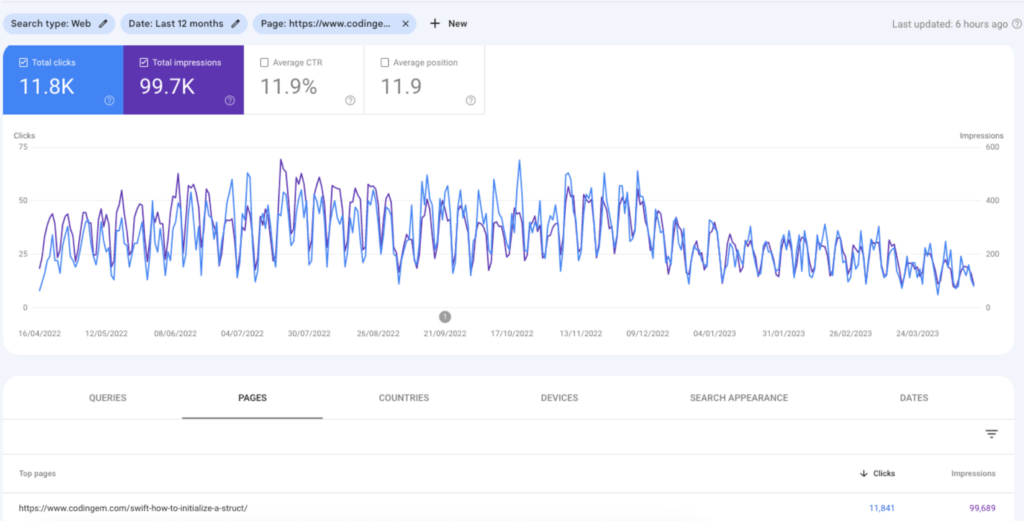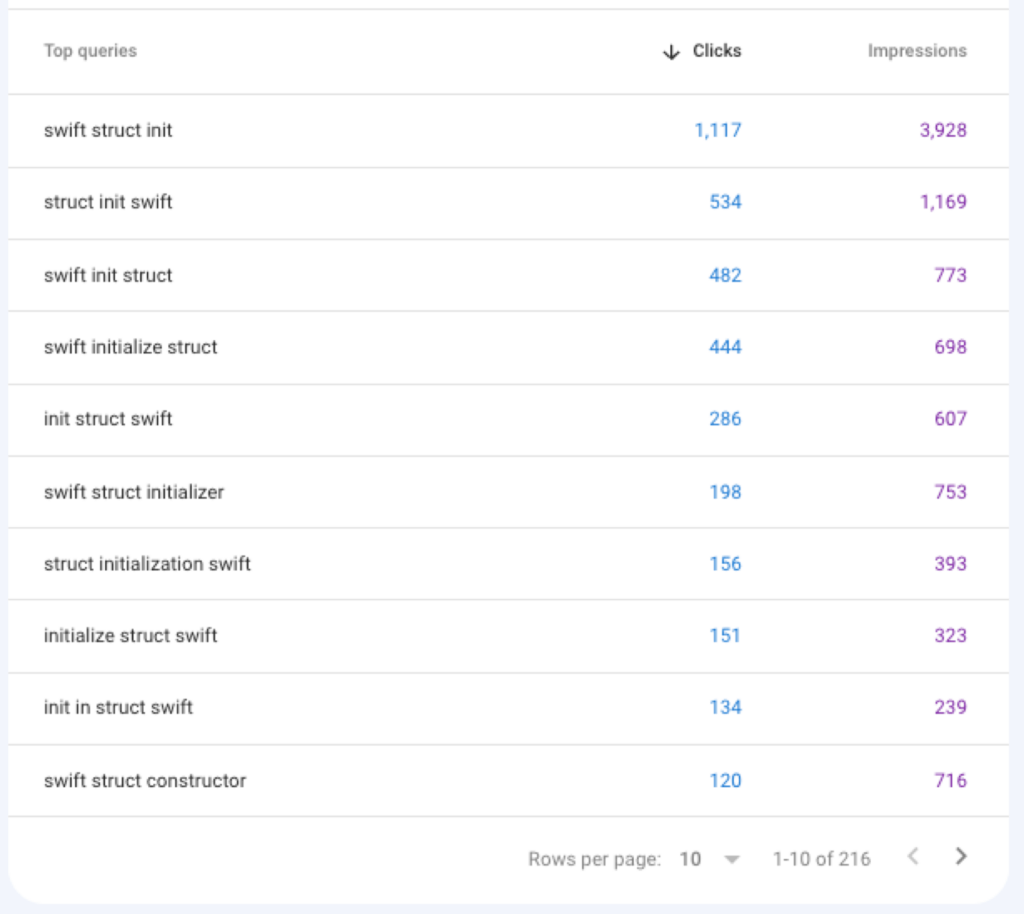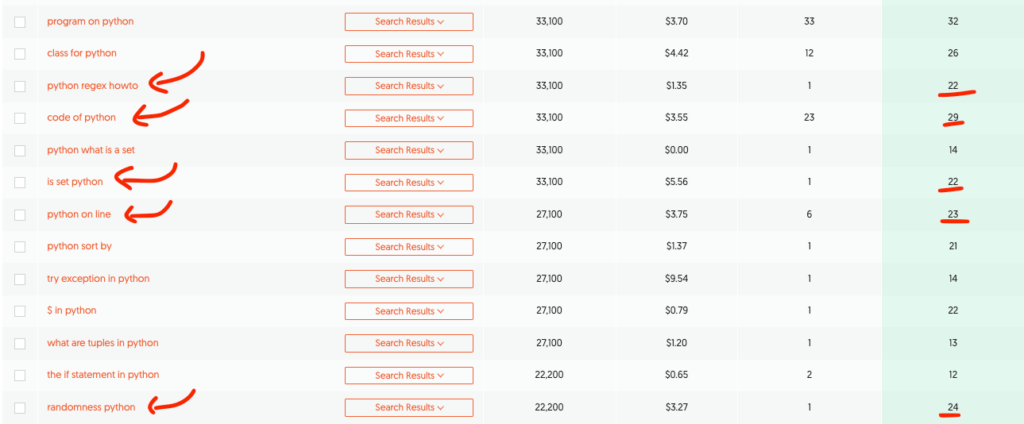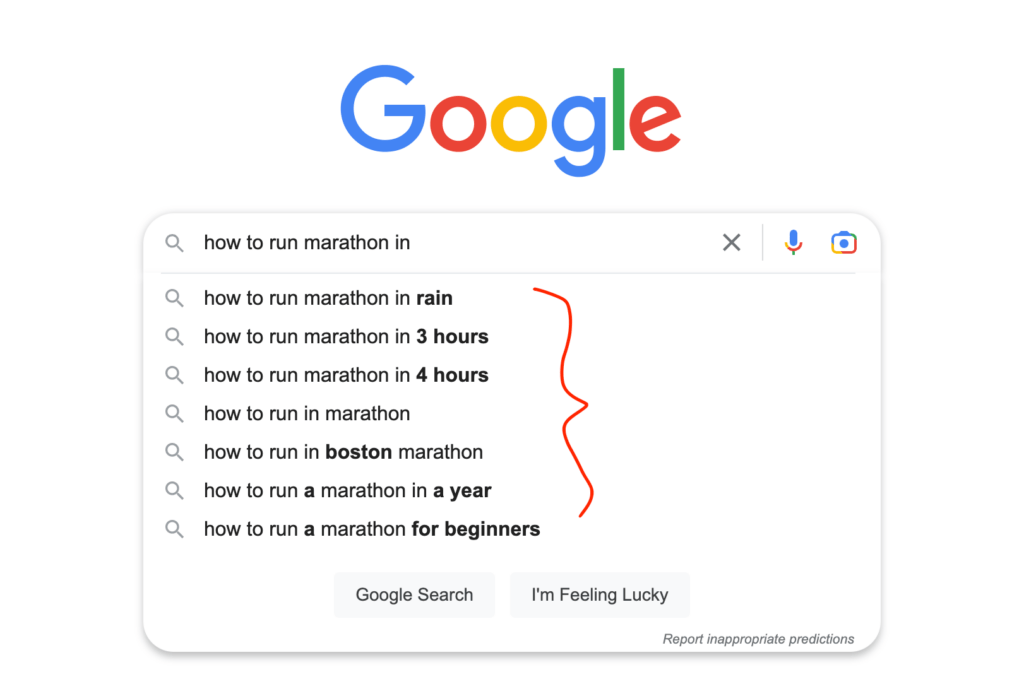I’ve built a bunch of profitable blogs and websites without using SEO tools.
The biggest issue I had when I used SEO tools was that they were way off in estimating search competition and search volumes.
Yet those are really pricey—usually, the price tag is 10-20 times more than your web hosting plan.
Instead of using SEO tools, you can use Google’s own data for free to get much better results.
Just Google your blog post topic idea to see what’s going on in the search results. This gives you a much more reliable way to analyze the competition.
Also, because search volumes are not publicly available, there’s no way for you to tell how many times something is searched for. This is a problem SEO tools do not solve. They just estimate and are completely off most of the time.
Here are the biggest issues SEO tools have and why using them won’t help you rank higher.
Make sure to also read: What Is SEO
1. Wrong Traffic Level Estimations
One of the main uses for an SEO tool is to estimate the competition and search volume.
Before you write a blog post about something, you want to get some idea of how many people you can potentially pull in.
Unfortunately, search volumes are not made publicly available by search engines.
This means SEO tools rely on estimations, not actual data. Sadly, these estimations are way off most of the time.
Also, because people target the same topic with a variety of keywords, an SEO tool has no way to capture the true number of searchers for a particular topic.
Example
Here I’m using an SEO tool to check how many times people search for a programming-related topic called “Swift initialize struct“:
Based on the tool, this search has no search volume, but it’s clever enough to suggest some related keywords that people might search for.
Nonetheless, there are only about 600 searches that are related to the search query I started with.
This suggests that there’s a very small group of people searching for that topic. It’s not worth writing a blog post about. I could probably only get 100 views of it if I rank high for all those key phrases.
But guess what, I wrote about this topic anyway, and here’s what really happened:

The article gets almost 1,000 monthly clicks from Google. It also gets almost 10,000 impressions every month.
In other words, the number of people searching for this topic is about 10,000 every month. Crazy! The SEO tool suggested that the search volume is only about 600 but it’s almost 20 times more than that.
Now, how about those related search queries? The SEO tool said there are only 6 related search ideas that people search for.
But here’s the reality:

In the bottom right corner, the number of search queries is 216—much more than the 6 suggested by the tool.
TLDR; The SEO tool got the traffic and related search terms entirely wrong. I shouldn’t have written a blog post about this topic based on the SEO tool. But when I did, the post did 20 times better than anticipated.
If you’re super optimistic, you can view this as “Well, the tool was still able to give you some direction”.
But the problem is that SEO tools also miss valuable search terms altogether.
A typical SEO report might say there’s 0 search volume, even when there are thousands of people searching for the topic. If this happens, you’re missing out big.
2. Suggests Stupid Keyphrases to Target
When you think about search terms, there are lots of search phrases that have the same intention.
For example:
- How to start a website
- How to create a website
- How to build a website
- How can I start a website
- How can I create a website
And so on. You get the idea.
All of the above search terms have the same goal: To build a website. If you search for those in Google, you get more or less the same search results.
But here’s a problem with SEO tools.
An SEO tool might suggest search phrases and claim that there’s a ton of search volume but not any competition—which is what you want to be able to rank high, right?
For sure, but if the search phrases make no sense, then there’s not much use for those suggestions.
Consider this example search query:
“How to website build”
This search query is still targeting “How to build a website” but the words are typed in the wrong order.
Now, let’s say an SEO tool gives you the following search difficulty levels:
- How to build a website: 95
- How to website build: 5
This suggests that you should write a blog post for the latter search term based on the search difficulty.
But this is so wrong. If you write a blog post with the title “How to website build”, it’s not going to rank for “How to website build”. That search term goes under the umbrella of “How to build a website” as it clearly has the same intent.
There are tons of mistakes like this on SEO tools.
Example
For example, let’s say you’re looking for topics to write about Python programming.
Here’s a list of “easy” keywords to target based on an SEO tool “Search Difficulty” metric:

Based on the tool, these topics get a ton of searches and are easy to compete against. In other words, writing a blog post about these topics would make a ton of sense, right?
Well, not so fast.
These keywords make absolutely no sense. They get a ton of searches because people misspell them, but the search intent is entirely different. I’ve highlighted the most absurd ones.
For example, look at the “Python regex howto” keyword. The intent is clearly “How to do regex in Python” or “Python regex tutorial”.
If you were to write an article with the title of “Python regex howto”, you’d look silly in the eyes of searchers. Also, you’d not even gain a competitive advantage as you’re still competing with articles like “Python regex tutorial” which is super competitive.
Here’s the true competition for the keyword under the umbrella of which the “Python regex howto” goes:

As you can see, there’s a ton of competition and pretty much no chance for a new site to rank high.
This is all confusing, unintuitive, and unhelpful.
If you stay away from SEO tools as I’ve done, there’s no need to worry about stuff like this. Everything becomes so much easier.
3. Pricey
SEO tools are really pricey. There are tools that cost $200+ per month.
In my eyes, paying so much for a tool that is inaccurate makes no sense to me.
4. Relevancy
Last but not least, at least some SEO tools are behind the curve in the reports. The numbers might be lagging behind by a couple of weeks or even months.
If you want to write a successful blog post, one strategy is to write about something that people are searching for but no one has written good posts about.
Unfortunately, these breakout topics are hard to detect with SEO tools. Many times, the SEO tools give 0 search volume for a breakout term that has millions of searches.
And before the SEO tools pick these breakout terms up, the train has already passed.
What to Use Instead of SEO Tools?
Use Google’s own data—that’s free!
You can check what Google suggests when you start typing something.

These suggestions are great blog post topic candidates.
Before locking a topic, though, you should search for them to see what’s in the search results.
If you get a ton of ads or notable websites in the top 10, that’s probably too competitive.
If you get videos or images in the search results, that might suggest that people don’t want to read a blog post.
There are many things to consider when conducting research for blog post topics. Most of those are out of the scope of this post.
I recommend checking my free blogging masterclass to learn how to build a successful blog and rank high on search engines.
Why Do People Suggest SEO Tools Then?
SEO tool companies pay really well for people who recommend those. Some tools offer like 30% recurring commission for someone who’s able to bring in a customer.
Let’s say you have an SEO tool that costs $1,000/month for an agency. If you manage to bring in an agency to purchase a plan like that, you will earn $300/month for that one customer. You don’t need many of those to make a living, right.
This is the main reason why you see a ton of bloggers and SEOs suggesting SEO tools.
Another reason is that some simply believe those work. Surely, you can get results by using SEO tools, but in my experience, those results come much quicker if you don’t use those :D.
Wrap Up
Don’t use paid SEO tools. They’re just full of empty promises, inaccurate data, and other flaws that will only slow you down.
Use free tools instead!
